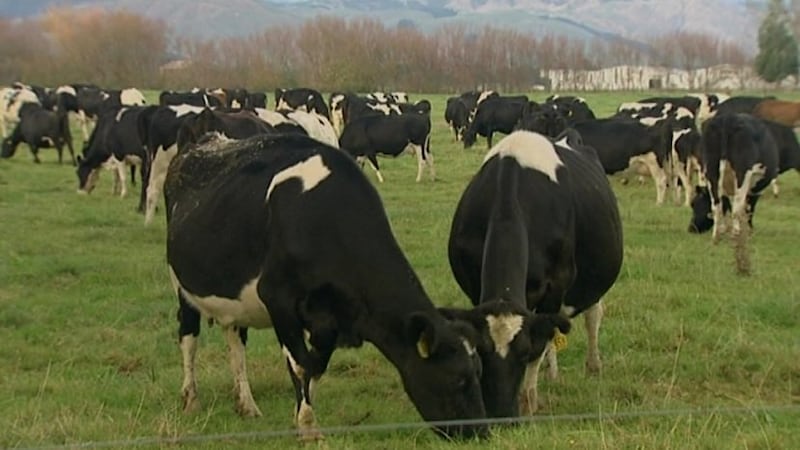Māori landowners, farmers and communities could see the most benefit from the government’s greenhouse gas reduction plan that has been widely panned by opposition groups.
The proposed plan released today will see carbon emissions priced at a farm level, giving farmers control over their own systems with the ability to reduce the costs, while revenue generated from the charges will be recycled back into the agriculture sector through technology, research and incentive payments.
It aims to reduce sheep and beef farming by 20% and dairy farming by 5%.
Hilton Collier, the general manager of Tai Rāwhiti-based Pākihiroa Farms, and a member of Te Aukaha, the agri-business arm of the Federation of Māori Authorities, who helped develop the He Waka Eke Noa plan released today, is pleased the government recognised the complexities faced by whenua Māori managers, but is waiting for the full details to be released.
He says owners of Māori farms tend to own both the livestock and the land and will be in a position to reduce their costs by offsetting the emissions of livestock with eligible vegetation on the whenua such as native bush and riparian planting.
“I think the other big gains for Māori are to recognise that a proportion of the levy we pay will go into a dedicated, ring-fenced fund where the investment will be back in incentives to support whenua Māori reduce greenhouse gas emission as opposed to what we’ve traditionally seen where all the levies go into a big pot and Māori interests may or may not be represented.”
Māori in fortunate position
He says that allows Māori landowners, who often farm less intensively and have lower production levels, or are on marginal land, to be masters of their own destiny.
“From that point of view, we don’t want to pay unnecessary levies. But, if we can use some of that funding to help whenua Māori reduce emissions and be better prepared for the future, I think it opens up a world of new opportunities.
“Māori are in a fortunate position that we have long-term time horizons. 100, 200, and 300 years is nothing for us, so we can start to build the sort of land use and business model that will sustain us well into the future. If we’re smart and strategic.”
Prime Minister Jacinda Ardern says the plan would see Aotearoa farmers lead the world in reducing emissions while creating a competitive advantage.
“No other country in the world has yet developed a system for pricing and reducing agricultural emissions, so our farmers are set to benefit from being first movers.
Federated Farmers furious
“Cutting emissions will help New Zealand farmers to not only be the best in the world but the best for the world; gaining a price premium for climate-friendly agricultural products while also helping to boost export earnings."
Opposition groups, however, have slammed the proposal, with Federated Farmers saying the dramatic target reductions in the sheep and beef and dairy sectors will "rip the guts out of small town New Zealand".
"Federated Farmers is deeply unimpressed with the government’s take on the He Waka Eke Noa proposal and is concerned for our members’ futures," national president and climate change spokesperson Andrew Hoggard said.
"We didn’t sign up for this. It’s gut-wrenching to think we now have this proposal from the government that rips the heart out of the work we did, out of the families who farm this land.”
It is concerned farmers and landowners will sell off their land to wealthy overseas investors who will then convert the farmland into forests in exchange for ‘carbon cash’.
"The government’s plan means the small towns, like Wairoa, Pahiatua, Taumaranui [sic] - pretty much the whole of the East Coast and central North Island and a good chunk of the top of the South - will be surrounded by pine trees quicker than you can say ‘ETS application’.
'Māori don't sell land'
“So all the small town cafes, car yards, schools, pubs, rugby clubs, hairdressers and supermarkets can say goodbye to the small town business supported by the agriculture around them.”
However, Collier believes the incentivised diversification of land use could reinvigorate rural communities, particularly where whenua Māori is predominant.
"If I look at one of our properties within Pakihiroa, we're not going to transition all our hill country but we will be identifying areas that are more marginal, that are less profitable in our sheep and beef system that we think will achieve better returns by having trees because we know we must deal with an erosion problem.
"If we can encourage the rural community to apply that lens at scale, we can get the diversified landscape that we need for the future, and importantly our rugby teams can continue to field 15 players and reserves.
“I also make the observation that Māori don’t sell land, so we’re not necessarily the party selling it to overseas investors wishing to convert to total tree cover.”

